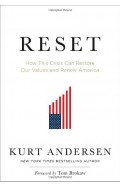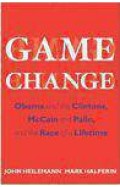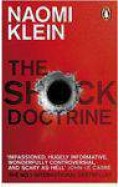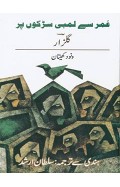HYBRID RULE IN PAKISTAN
By: Zahid Hussain
-
Rs 3,145.50
- Rs 3,495.00
- 10%
You save Rs 349.50.
Due to constant currency fluctuation, prices are subject to change with or without notice.
Since its creation as an independent state in 1947, Pakistan has alternated between authoritarian military regimes and ineffectual civilian rule. For most of its history, the country has been ruled by powerful military with short spans of elected civilian democracy in between. But since 2018 Pakistan has experimented with what many have described as hybrid rule. The system has been unique for many reasons. The security establishment has always been the determiner of national security and foreign policy in Pakistan but that role has become more pronounced under the lmran Khan government. Its extending shadow can be discerned in all dimensions of the state. In this book, collection of his columns, Zahid Hussain examines Pakistan's experiment with a hybrid rule and its consequence.
Since its creation as an independent state in 1947, Pakistan has alternated between authoritarian military regimes and ineffectual civilian rule. For most of its history, the country has been ruled by powerful military with short spans of elected civilian democracy in between. But since 2018 Pakistan has experimented with what many have described as hybrid rule. The system has been unique for many reasons. The security establishment has always been the determiner of national security and foreign policy in Pakistan but that role has become more pronounced under the lmran Khan government. Its extending shadow can be discerned in all dimensions of the state. In this book, collection of his columns, Zahid Hussain examines Pakistan's experiment with a hybrid rule and its consequence.
No-Win War :The Paradox of US-Pakistan Relations in Afghanistan’s Shadow
By: Zahid Hussain
Rs 972.00 Rs 1,080.00 Ex Tax :Rs 972.00
Zubin Mehta: A Musical Journey (An Authorized Biography)
By: VOID - Bakhtiar K. Dadabhoy
Rs 892.50 Rs 1,050.00 Ex Tax :Rs 892.50
The Faltering State: Pakistan's Internal Security Landscape - Hardcover
By: Tariq Khosa
Rs 1,211.25 Rs 1,425.00 Ex Tax :Rs 1,211.25
The Origins of Political Order From Prehuman Times to the French RevolutioN
By: Francis Fukuyama
Rs 4,045.50 Rs 4,495.00 Ex Tax :Rs 4,045.50
Reset: How This Crisis Can Restore Our Values and Renew America
By: Kurt Andersen
Rs 450.00 Rs 500.00 Ex Tax :Rs 450.00
How To Win A Cosmic War God Globalization And The End Of War
By: Reza Aslan
Rs 625.50 Rs 695.00 Ex Tax :Rs 625.50
Game Change Obama And The Clintons McCain And Palin And The Race Of A Lifetime
By: John Heilemann
Rs 715.50 Rs 795.00 Ex Tax :Rs 715.50
Made to Stick: Why Some Ideas Take Hold and Others Come Unstuck
By: Chip Heath & Dan Heath
Rs 2,695.50 Rs 2,995.00 Ex Tax :Rs 2,695.50
The Faltering State: Pakistan's Internal Security Landscape - Hardcover
By: Tariq Khosa
Rs 1,211.25 Rs 1,425.00 Ex Tax :Rs 1,211.25
Retail Therapy: Why The Retail Industry Is Broken – And What Can Be Done To Fix It
By: Mark Pilkington
Rs 4,245.75 Rs 4,995.00 Ex Tax :Rs 4,245.75
Zubin Mehta: A Musical Journey (An Authorized Biography)
By: VOID - Bakhtiar K. Dadabhoy
Rs 892.50 Rs 1,050.00 Ex Tax :Rs 892.50
No-Win War :The Paradox of US-Pakistan Relations in Afghanistan’s Shadow
By: Zahid Hussain
Rs 972.00 Rs 1,080.00 Ex Tax :Rs 972.00
The Faltering State: Pakistan's Internal Security Landscape - Hardcover
By: Tariq Khosa
Rs 1,211.25 Rs 1,425.00 Ex Tax :Rs 1,211.25












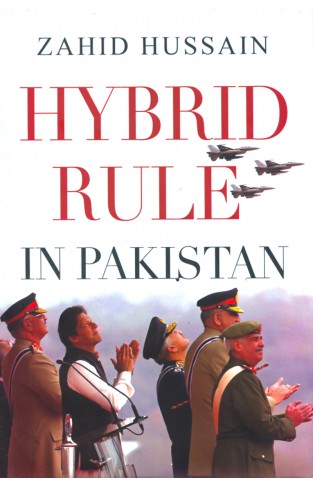
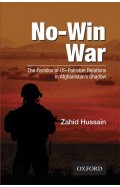


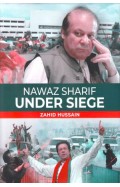
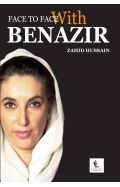

-120x187.jpg?q6)







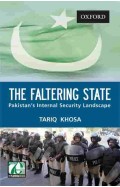
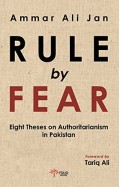
-120x187.jpg?q6)
